How people are falling in love on climbing walls
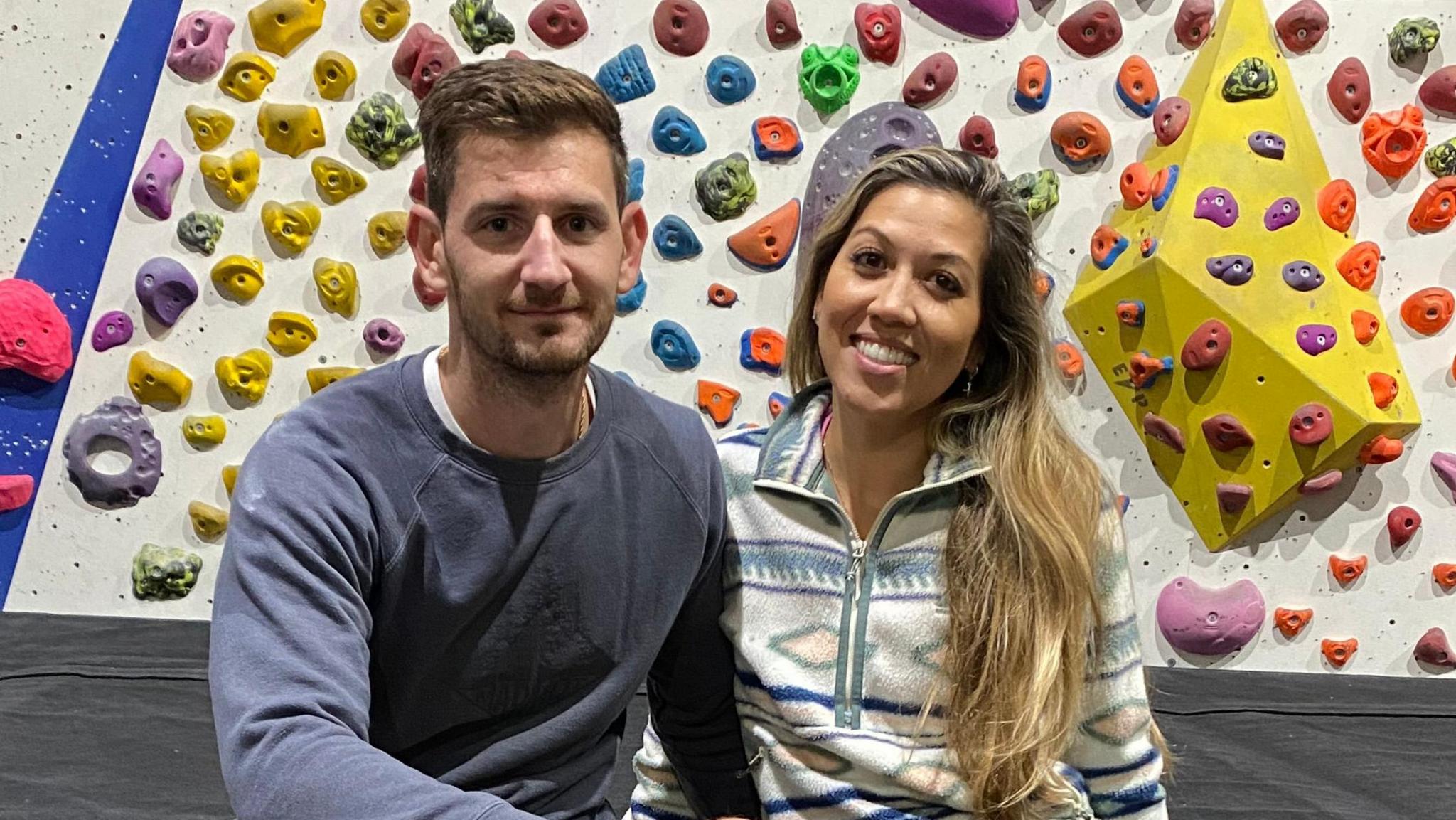
Kellie and Jack met at the Climbing Depot in Sheffield
- Published
Megumi and Gordon McKillop didn't meet on a dating app, or at work, or through a mutual friend.
Instead, they met when Megumi was attempting a tricky climbing route at their local bouldering centre, and was - by her own admission - falling off the wall.
Gordon, who'd been climbing for more than 10 years, asked if Megumi wanted some advice. Then, later that day, when Megumi, a relative newbie at the sport, cut her hand on the wall, Gordon jumped in to offer her an antiseptic wipe.
That night, Gordon, now 42, decided to look Megumi, 33, up on Facebook to check how her name was spelt. But he accidentally sent her a friend request.
That was in November 2021, shortly after Megumi had relocated from Canada to Scotland. Ten months later, they moved in together. In February 2024, the couple got married - and, true to form, the wedding was dominated by climbing.
Their wedding reception was a picnic at Dumbarton Rock, a popular climbing sport in western Scotland, the photographer was one of Gordon's climbing friends, and they spent their honeymoon in Kalymnos, a popular rock climbing destination in Greece.
To this day, they still go climbing at the Newsroom in Glasgow, the climbing wall where they met. They've befriended a number of other couples who met through bouldering, too.
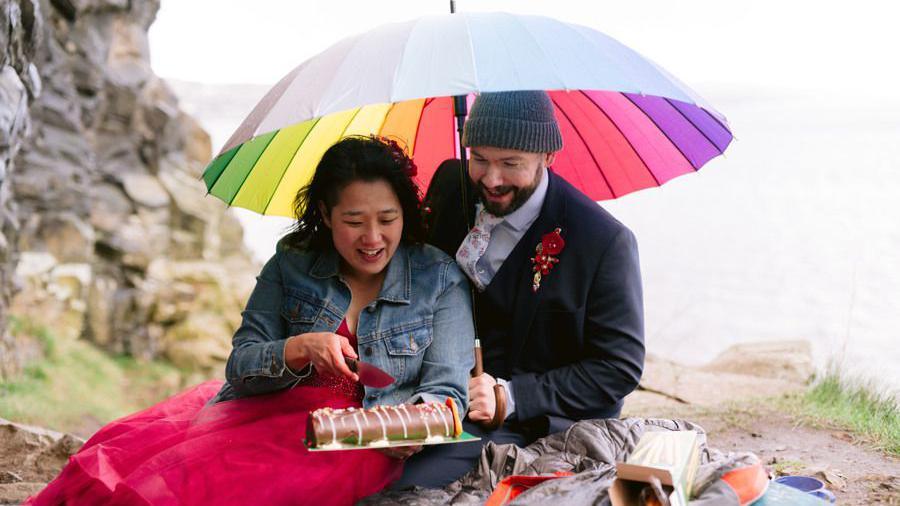
Megumi and Gordon held their wedding reception at Dumbarton Rock in Scotland
Where people find love is always changing. Dating apps, a common way to meet a partner, have seen a significant drop in user numbers this year, says communications regulator Ofcom.
But other more traditional pathways to finding love, such as meeting someone at work or on a night out, have also seen a lot of disruption recently.
Shifting attitudes towards working from home are seen by many as good for work/life balance, but spending less time with colleagues can also mean less opportunity to meet new people. This autumn, more than 10% of Britons were working remotely and over a quarter were working hybrid patterns (a mix of home and office working), according to ONS data, external - significantly higher than pre-pandemic figures, external.
Meanwhile, NHS data, external shows that average weekly alcohol consumption had declined slightly in the decade to 2022 and the Night Time Industries Association warns, external that UK night clubs are closing at a rapid rate.
But if dating apps, offices and nightclubs are all becoming less of a feature of people's social lives, then what replaces them?
'More talking than climbing'
Managers at climbing centres across the UK say their venues are one of the unlikely places people are meeting potential partners.
Sarah Moran, manager at Climbing Works in Sheffield, says that she's been on dates with people she's met through climbing.
"They've come up to me and we've chatted a little bit, maybe climbed a little bit together, and at the end we exchanged numbers," she says.
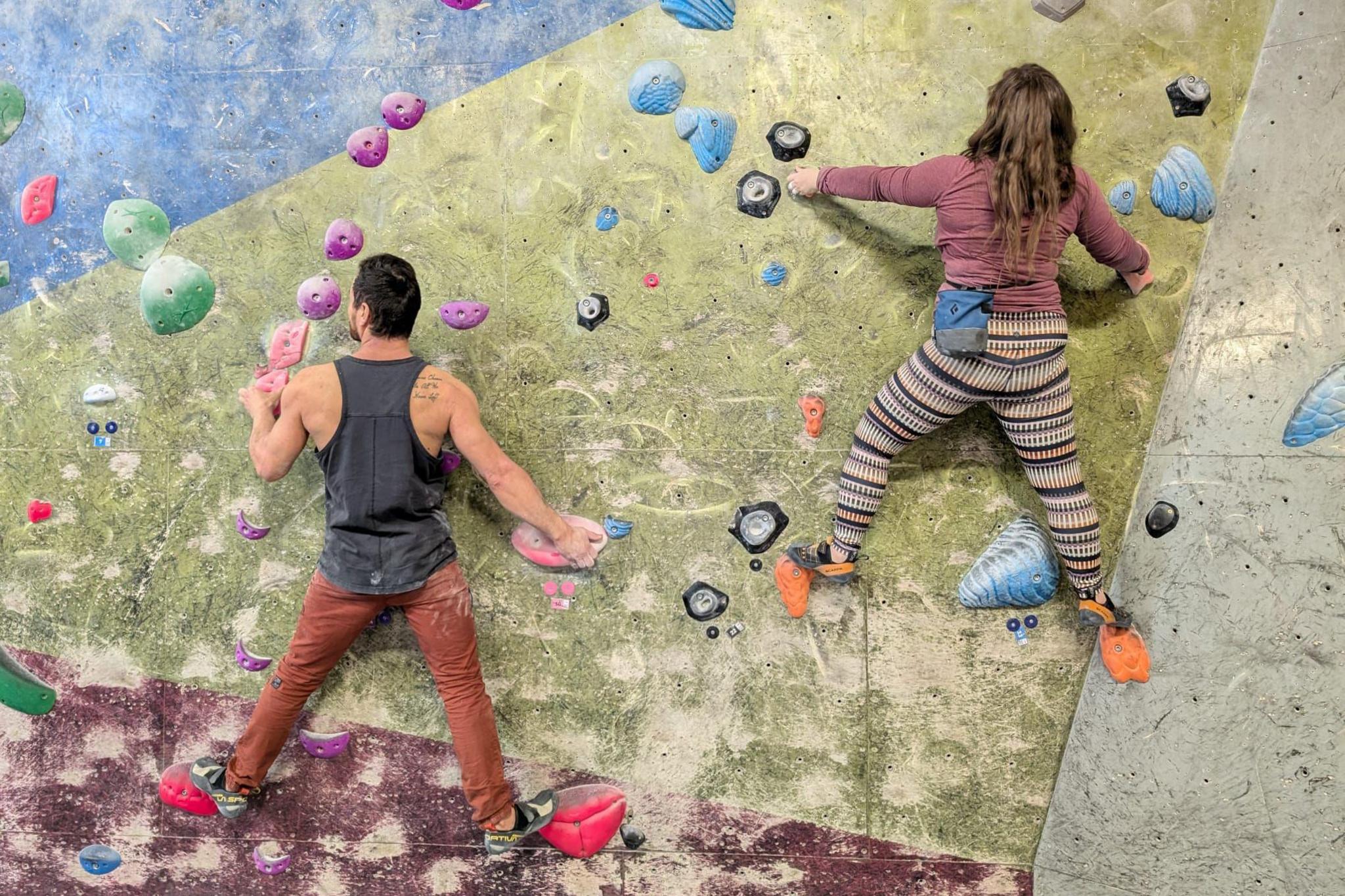
Rose and Mark's social life is "based entirely around climbing"
The managers say the sport has boomed in popularity since the pandemic, which they mainly put down to its introduction at the Tokyo 2020 Olympic Games, as well as British rock climber Toby Roberts’ win at the Paris 2024 Games.
About 400,000 people climb at least twice a month, according to the British Mountaineering Council. There are more than 400 climbing gyms across the UK.
Climbers say that it's a "hyper-social" sport where you're constantly in close proximity with other people.
Gill Peet, manager at Blackburn climbing wall Onyx, likens climbing centres to a "grown-up youth club". She says climbers are "almost forced" to socialise because of the time spent on the mats between each climb, catching their breath, planning out their next route or asking for advice.
The socialising often continues post-workout, too, with climbers grabbing a coffee or pizza together with many climbing centres having their own cafes.
"I do more talking at the climbing wall than I do climbing," Rose Henderson says.
Rose met her partner, Mark Garbe, in 2015 at a climbing group organised through the socialising app Meetup. The pair, both 33, quickly hit it off and now live together in Ayrshire.
Mark says their social life is "based entirely around climbing". They've been on group holidays to Fontainebleau, a climbing hotspot in France, and cycled the Hebridean Way with their climbing friends. They choose their holiday destinations based on whether there are climbing centres nearby and watch climbing world cups together.
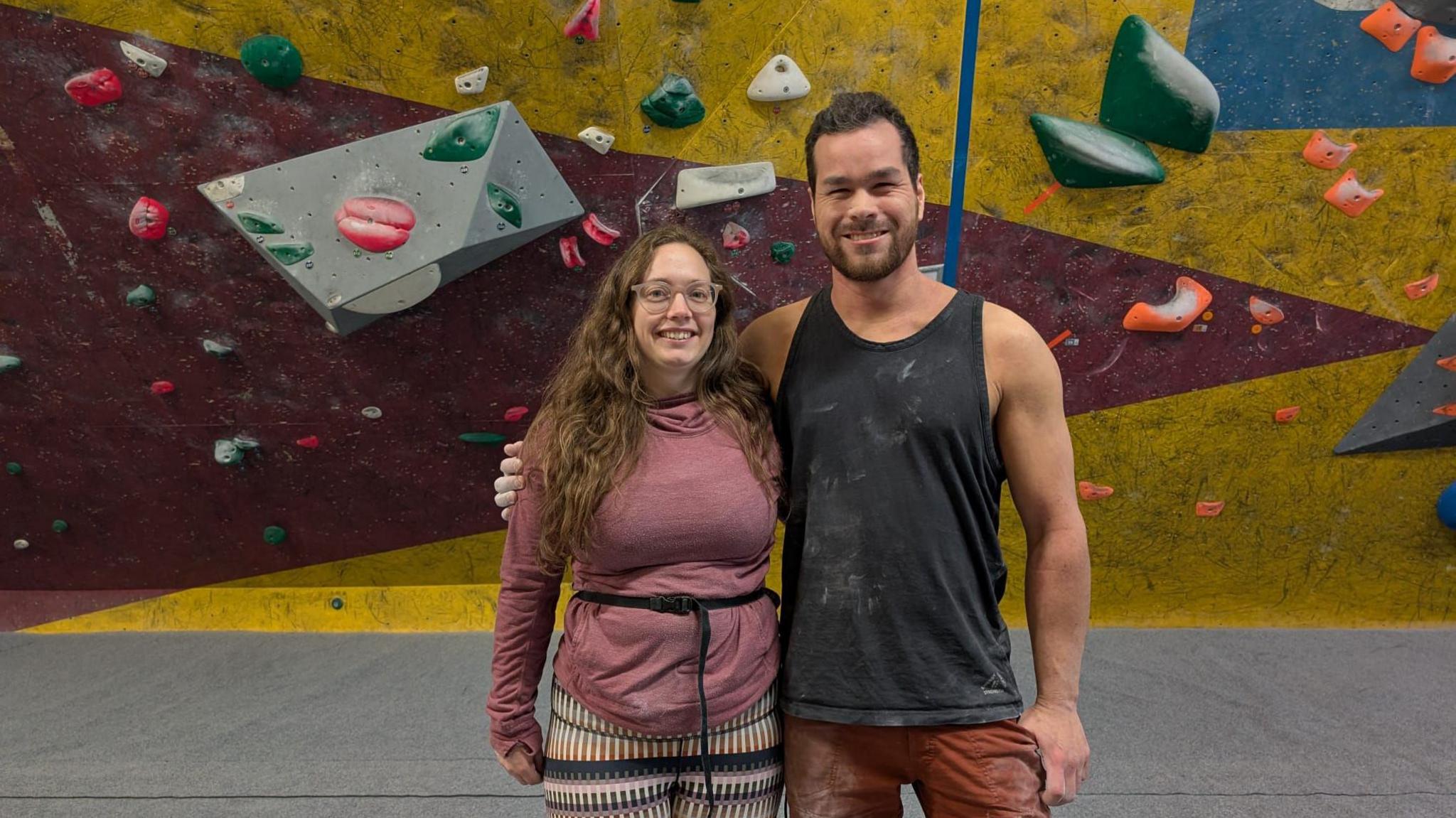
Rose and Mark have made lots of friends through climbing
'Our generation is lonelier so we're friendship matchmakers'
- Published1 December 2024
Why some singles are cutting things off after bad dates
- Published1 March 2024
'I'm not actually looking for a man in finance'
- Published8 June 2024
Many climbing centres host social events, including women's and LBGT nights, where climbers of a range of abilities can get to know other people.
Kaloyan Galev, 21, met his partner Samuel Prentice, 22, at a student climbing event in early 2020. Kaloyan has taken part in multiple sports competitively but says climbing is the only one he knows of that hosts specific "LGBT nights".
Climbing walls are "very accepting", he says.
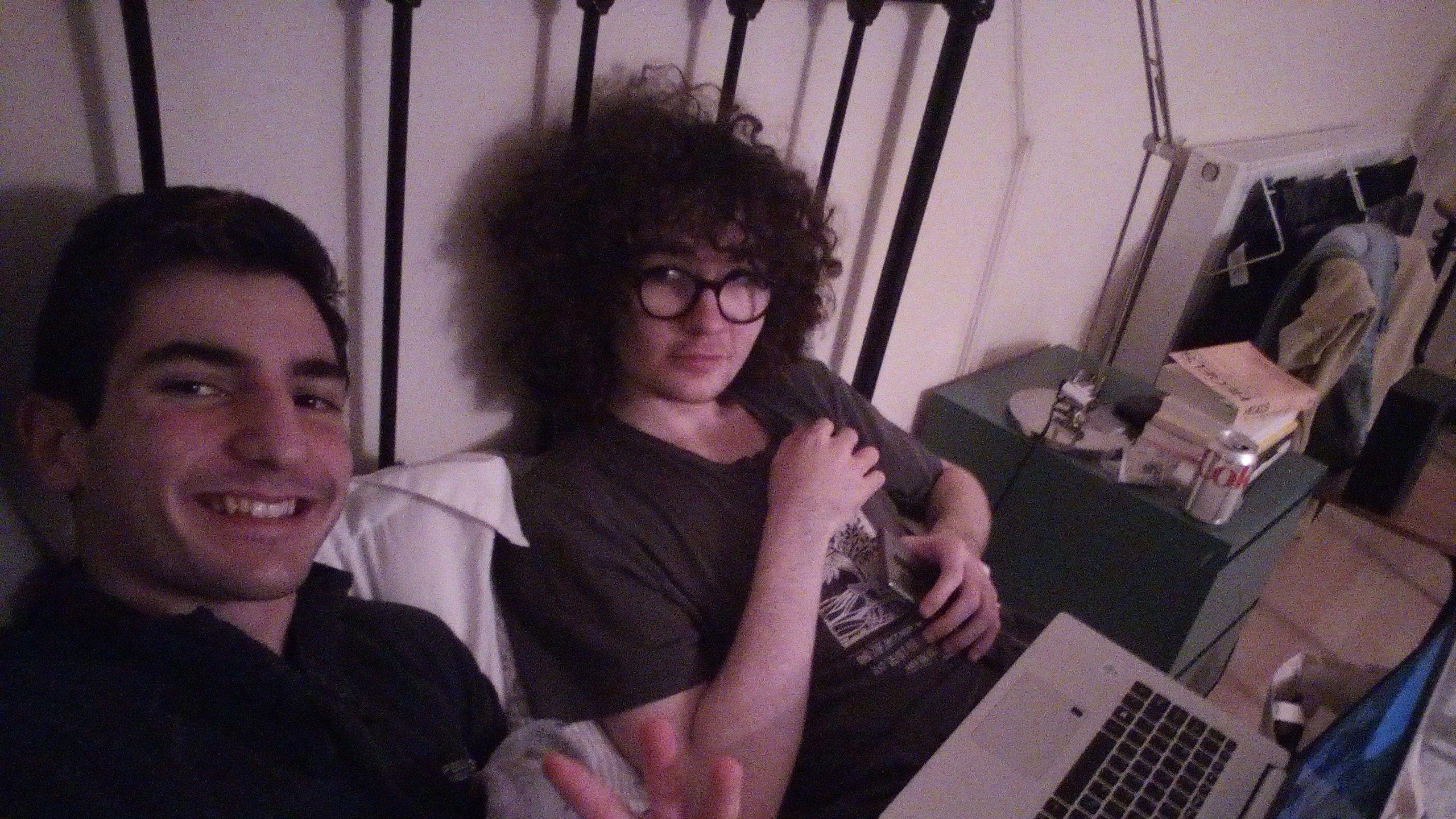
Kaloyan and Samuel met at a student climbing event in early 2020
Dating apps on the decline?
Millions of Brits use dating apps - about 10% of UK adults who use the internet and 4.9 million people used online dating services in May, according to a new report from Ofcom, external. But after soaring in popularity following the introduction of Tinder in 2014, user numbers are now falling.
The four most popular dating apps in the UK - Tinder, Hinge, Bumble and Grindr - all lost UK users between May 2023 and May 2024, says Ofcom's report.
The number of UK adults using Tinder dropped 23% and Bumble users fell 26%. Hinge, which has the youngest user base of the mainstream dating apps, experienced a 9% drop in users.
Mariko Visserman, a psychology lecturer at the University of Sussex who studies romantic relationships, says "choice overload" is causing some people to become tired of online dating. This, combined with some users' "very high expectations and standards", often leads to disappointment, she says.
Before he met Kaloyan at a climbing event, Samuel had tried out dating apps.
"I find it just hard to get something going with a stranger just through an online profile," he says. "Almost feels like squeezing water from a stone sometimes."
Climbing, in comparison, is "such a low pressure place to meet," Gill says. "You're not specifically there to find someone, you're just there to climb."
And when you climb together, you "quickly learn a lot about someone", says James Lister, marketing manager at Depot Climbing, a chain of climbing walls. You can see how they react when they’re frustrated at a route, happy with an achievement and socialising with a group of people, he adds.
It's a lot of "red or green flag ticking," he says.
A 'cheap' first date
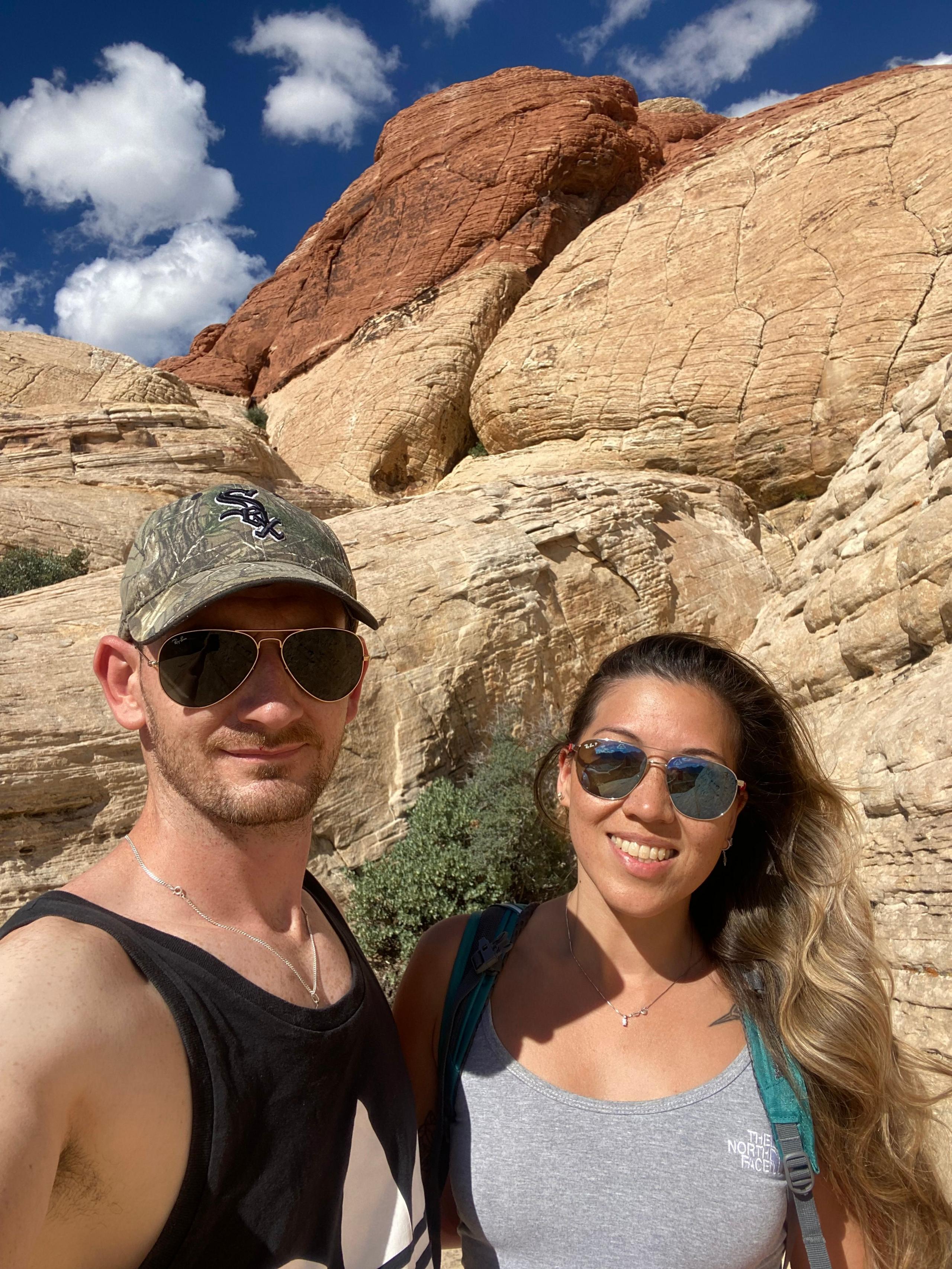
Before she met Jack, Kellie had told her friends she couldn't date someone who didn't climb
"I'd find it hard to be with someone who didn't climb," says Kellie Burston, 35, who works as a planning and permitting manager. "I said to friends, 'I couldn't date someone who wasn't a climber.'"
She'd filled her dating apps with photos of her climbing and doing outdoor activities in the hope of finding a match with similar interests but had no luck.
Kellie met her partner Jack Toon, 32, a HGV driver, at Depot Climbing in Sheffield.
They were both hooked on the sport, and "we just kept seeing each other," Jack says.
After a while, Kellie and Jack struck up a conversation on Instagram. Their first date was climbing together - a "cheap date", Kellie says, since they both had membership.
Kellie says she'd always hoped to meet someone this way, but thought it was a pipe dream.
The couple have now been together four years and are getting married in Las Vegas next year. They usually climb together about four times a week and live just a 15 minute drive from the wall they met at.
Related topics
- Published9 June 2024
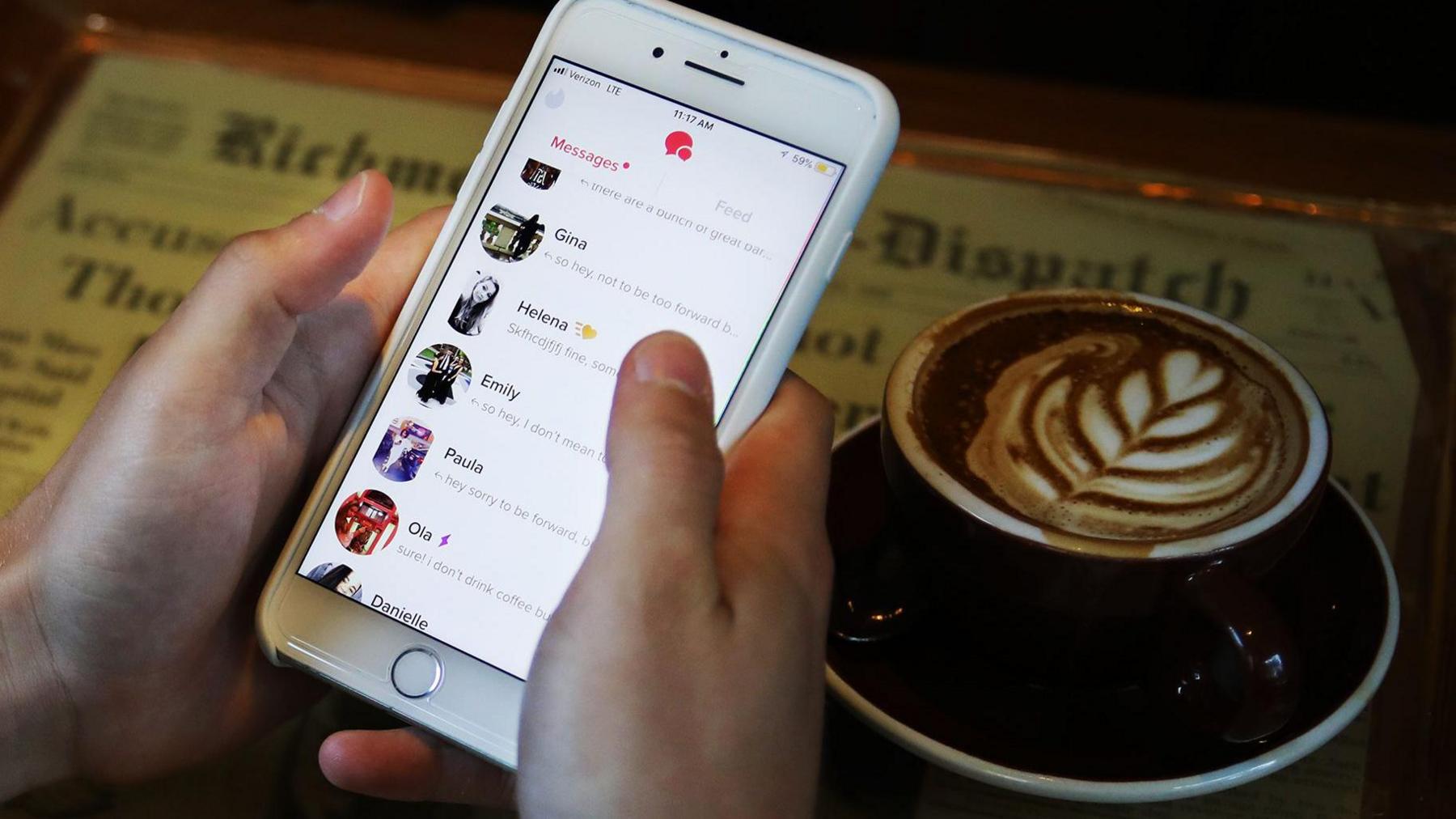
- Published1 March 2024
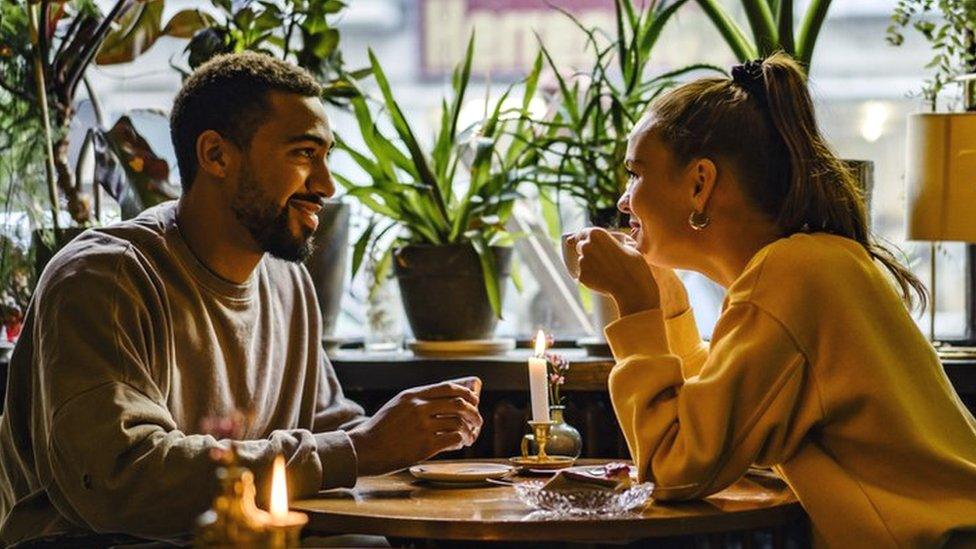
- Published21 September 2024
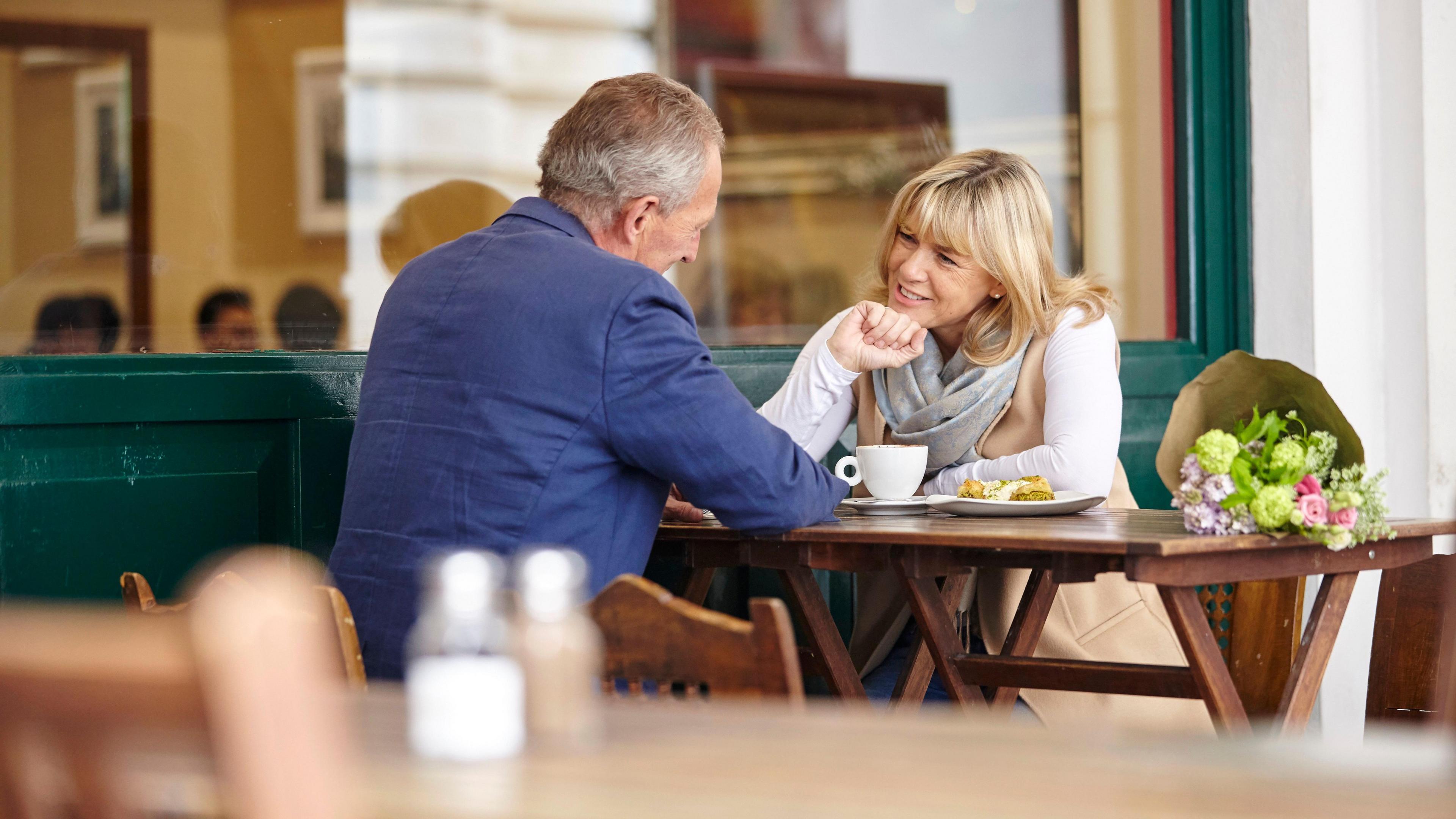
- Published3 July 2024
